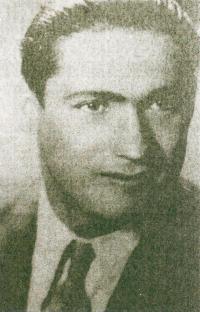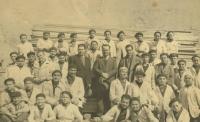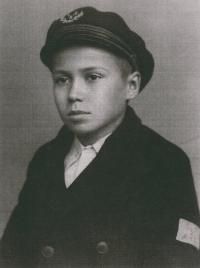This was our purpose: to chase away the communists from our country

Stáhnout obrázek
Vasile Dudeanu was born on April 12, 1928, in Bucharest. Still in high school, left without a father and specializing in wood processing, Vasile Dudeanu started working in a workshop, making small parts for violins. In 1948, along with several students of the Industrial High School in Bucharest, supporters of the National Peasant‘s Party and of the monarchy, Vasile Dudeanu became a member of an anti-communist organization called Column VI. Gradually, more and more students, and eventually teachers, started joining the organization. Column VI had a statute, its members held meetings and managed to get weapons. Their main action consisted of printing and distributing anti-communist and anti-Soviet manifestos. The leaflets were created with the help of a stamp with letters made of rubber. The members of the organization saved money on transportation by walking to school, in order to buy paper. The leaflets were distributed in Bucharest and the surrounding area. The members of the group, as well as other people who had gotten in touch with them, were arrested in two waves, one in November 1949 and the other in the spring of 1950. Following two trials, more than 30 persons received sentences of 1 to 7 years in prison. Vasile Dudeanu was arrested on November 11, 1949, and, following a trial held in October 1950, was sentenced to 4 years of hard prison for „plotting against the socialist order“. After more than four years spent in prison, in Jilava, Valea Neagră, Poarta Albă and Gherla, Vasile Dudeanu was released on January 5, 1954.After his release, Dudeanu first started working in the local industry in Titu, near Bucharest, then got a job at a furniture factory in Bucharest. He is currently living in Bucharest and is an active member of the Association of Former Political Detainees in Romania.


